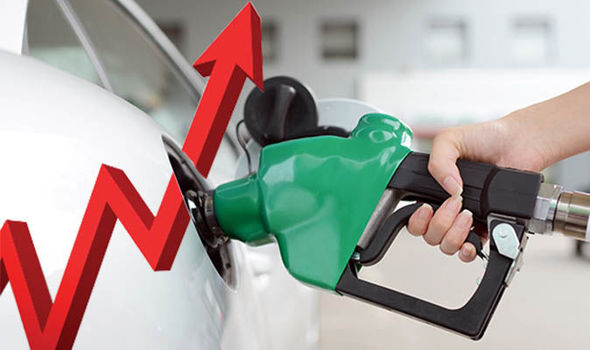Bengaluru, NFAPost: Petrol and diesel prices have hit an all-time-high in recent months as the customers are paying up more in taxes than the actual base price for these petroleum products.
With taxes forming a bigger component in the retail price of these fossil fuels than the base price itself, it is imperative to consider the case of bringing petrol and diesel under the scope of Goods and Services Tax (GST).
As Hindustan Times reports, Prime Minister Narendra Modi pointed out that his government is considering the case of bringing petrol and diesel under the scope of GST while addressing the media at the foundation stone laying ceremony of oil and gas projects in Tamil Nadu on 17 February.
“We are trying to eliminate the cascading effect of different taxes. We are committed to bring natural gas under the GST regime,” PM Modi said, urging global investors to invest in energy projects in the country.
The idea of bringing petrol and diesel under the ambit of GST can be a boon and a bane at the same time. Here are a few key outcomes that could arise as the direct result of implementing GST regime on petroleum products:
Steep Fall in Current Petrol and Diesel Prices
Latest price data for petrol and diesel reiterate the fact that customers are paying more in taxes than the actual base price for these fuels. For instance, the Indian Oil website reported the base price of petrol and diesel per litre at Rs.33.26 and Rs.34.97 on 1 March. However, the retail selling prices on that day were Rs.91.17 and Rs.81.47 per litre respectively.
In other words, the tax component comprising central excise and the state taxes for petrol and diesel was Rs.53.94 and Rs.43.74 per litre. It must be noted that the central excise duty takes a much larger share than the state imposed Value Added Tax (VAT).
Even if the highest GST rate of 28% was applied to petrol and diesel, the post-tax price of these fuels would be far lower than the prevailing retail price.
Petrol and Diesel Prices – Equal Revenue Distribution
The latest price data for petrol and diesel as on 1 March suggests the state taxes clearly had a smaller share in the retail price than central taxes. Union excise duties for petrol and diesel items stood at Rs.32.9 and Rs.31.8 per litre while the state imposed VAT was Rs.21.04 and Rs.11.94 per litre on these items. As these numbers indicate, the centre is the major beneficiary of tax incomes from the sale of these fuels.
According to the revenue shares earmarked by the 15th Finance Commission (FFC), the state government is entitled to get 41% of central revenue accrued through tax incomes from the sale of petrol and diesel.
In other words, states would get Rs.34.52 and Rs.24.97 per litre in total taxes (VAT + 41% of central excise duty) per litre of petrol and diesel sold at the current price markings.
However, the inclusion of increased cess (non-shareable) and other forms of special taxes (non-shareable) into the Centre’s pool of taxes, has invariably tilted major share of tax benefits in favour of the Centre at the expense of reduced tax income with the states.
Consequently, the share of tax distribution between states and the centre has been largely skewed in favour of the latter as the states have never attained 41% share of the gross total revenue from the Centre’s pool of taxes. The 2021-22 budget has further skewed the inequalities in tax distribution as the states are pegged to earn just 30% of the centre’s gross tax revenue.
This issue is further compounded by the fact that the basic excise duties constitute only a marginal fraction of special duties and cess imposed by the Centre on the sale of petrol and diesel. As these excise duties and cess fall under non-shareable category, the states stand to lose a major share from the Central tax revenue.
Loss of Major Revenue and Autonomous Control over Fuel Prices
The inclusion of petrol and diesel products under the scope of GST will wipe out a major source of tax revenues for both the Centre and state governments. Although this idea has been widely debated between the ruling and opposing parties, it has never been put into action owing to its serious downsides on the fiscal front.
Strained global economy and an equally weak fiscal situation of the Central government are two big factors that could presently hold back the idea of bringing petroleum products under the gambit of GST.
Furthermore, both the Central and state governments will no longer hold the autonomous power and control over the prices of petrol and diesel, if GST regime is imposed on these items. In other words, GST will ensure that the prices are set to be uniform across all the states and tax limits are preset for both the centre as well as the states.
The union government would do well if it identifies alternative sources of tax revenues before taking the deep dive to absorb the impact of implementing GST regime on petrol and diesel prices.





